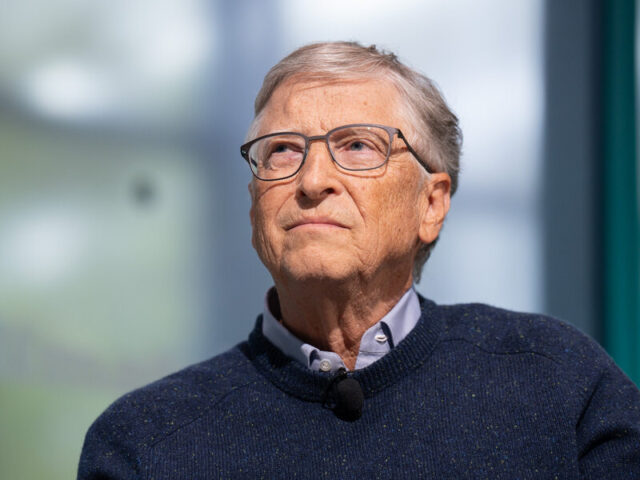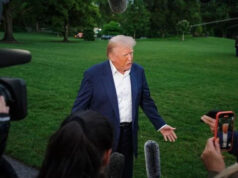
In one of the most explosive public rebukes of a fellow billionaire, Microsoft co-founder and philanthropist Bill Gates has accused Elon Musk of endangering the lives of the world’s poorest children by cutting off foreign aid. Gates’ pointed remarks came during a wide-ranging interview with the Financial Times, as he announced a sweeping new commitment: to donate the entirety of his remaining $168 billion fortune to the Bill & Melinda Gates Foundation over the next 20 years.
“The picture of the world’s richest man killing the world’s poorest children is not a pretty one,” Gates said, directly blaming Musk for the closure of the U.S. Agency for International Development (USAID), which had long been a pillar of American humanitarian support abroad.
DOGE and the Death of USAID
At the center of the controversy is Musk’s leadership of the Department of Government Efficiency (DOGE) — a Trump administration initiative aimed at slashing federal bureaucracy. In February, DOGE shuttered USAID, claiming it was riddled with inefficiencies and waste. The agency had been instrumental in fighting global diseases like measles, HIV, malaria, and polio, and was a critical conduit for health funding across sub-Saharan Africa and parts of Asia.
Gates, 69, was unflinching in his criticism. “I’d love for [Musk] to go in and meet the children that have now been infected with HIV because he cut that money,” Gates told FT.
While Gates acknowledged the need for accountability in public spending, he said the abrupt dismantling of USAID without a replacement strategy or global health continuity plan was “catastrophic.” He further warned of the long-term consequences, including the potential for disease resurgence and humanitarian collapse in fragile regions.
Musk’s Silence, DOGE’s Defense
Musk did not respond to requests for comment. However, DOGE spokesperson Harrison Fields released a strongly worded statement, defending Musk’s leadership.
“Elon Musk is a patriot working to fulfill President Trump’s mission to eliminate waste, fraud, and abuse,” Fields said. “Backbenchers should celebrate the selfless efforts of America’s most innovative entrepreneur, who is dedicating time to support American taxpayers and hold Washington accountable.”
The response underscores a growing ideological divide between the philanthropy-first approach of Gates and the efficiency-through-privatization ethos championed by Musk and the Trump administration.
Gates’ Legacy: All In on Giving
In sharp contrast to Musk’s hands-off foreign aid approach, Gates has doubled down on his foundation’s mission. On the Gates Foundation’s 25th anniversary, the billionaire announced not only the full donation of his wealth but also the closure of the foundation by December 31, 2045 — accelerating the timeline for its philanthropic mission.
“There are too many urgent problems to solve for me to hold onto resources that could be used to help people,” Gates wrote in a blog post published Thursday. “That is why I have decided to give my money back to society much faster than I had originally planned.”
Since its inception in 2000, the Gates Foundation has donated more than $100 billion, with another $200 billion expected over the next two decades through a combination of endowment growth and personal donations.
Gates’ personal wealth, valued at $168 billion by Bloomberg’s Billionaires Index, makes him the fifth-richest person in the world. Yet, he seems determined to ensure his fortune doesn’t survive him.
“People will say a lot of things about me when I die,” Gates wrote, “but I am determined that ‘he died rich’ will not be one of them.”
Foreign Aid and the Trump-Musk Vision
In February, Gates made a last-ditch effort to prevent the collapse of USAID by meeting with President Donald Trump at the White House. He later appeared on NBC’s TODAY show, warning that the loss of USAID’s expertise would be “very hard to re-create.”
While critics argue the agency needed reform, few expected its complete dissolution. The move has drawn criticism from international health agencies and humanitarian groups, who fear a vacuum in vaccine programs, disease control, and disaster relief efforts.
Musk’s backers argue that foreign aid can be more effectively handled by private-sector partnerships and local governance. Critics say this approach ignores the complex, long-term nature of global health systems and opens the door to massive health inequality.
Clash of Titans: Tech, Power, and Morality
This public clash between Gates and Musk represents more than just a disagreement over policy. It reflects a deeper philosophical divide between two of the most influential figures of the 21st century.
Gates believes in systematic, global coordination and has built the Gates Foundation on partnerships with the WHO, GAVI, and local governments to address complex challenges like poverty and disease. Musk, meanwhile, champions disruption, deregulation, and tech-driven efficiency, believing innovation — not bureaucracy — is the solution to global problems.
But when the battleground becomes public health, the stakes rise exponentially.
What Happens Now?
As Gates accelerates his mission to “give everything back,” the humanitarian fallout from USAID’s closure continues to unfold. International organizations are scrambling to patch the funding gaps, and outbreaks of preventable diseases are already being reported in vulnerable regions.
Whether or not Musk’s decisions amount to negligence or efficiency depends on whom you ask. But to Gates, the answer is clear — and personal.
“The math isn’t hard,” he told FT. “You cut the money, people die. Children die.”



